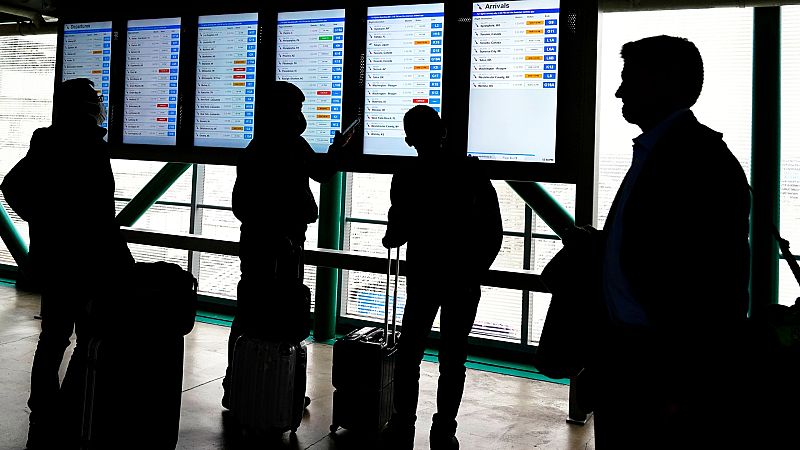Travel Companies Sound Alarm as Fewer Europeans and Canadians Opt for U.S. Visits

Expedia Group said Friday that reduced travel demand in the United States led to its weaker-than-expected revenue in the first quarter, and Bank of America said credit card transactions showed spending on flights and lodging kept falling last month.
The two reports add to growing indications that the US travel and tourism industry may see its first slowdown since the end of the COVID-19 pandemic fuelled a period of “revenge travel” that turned into sustained interest in getting away.
Expedia, owning accommodation booking sites like Hotels.com and VRBO along with its own online travel agency, was the most recent U.S. firm to announce declining business from both overseas tourists and local travelers.
Airbnb and Hilton noted the same trends last week in their quarterly earnings reports. Most major US airlines have said they plan to reduce scheduled flights, citing a decline in economy passengers booking leisure trips.
The US Travel Association has said that economic uncertainty and anxiety over President Donald Trump's tariffs Sure, here’s your rewritten sentence: In April, American faith in the economy dipped for another consecutive month, hitting its lowest point since the start of the pandemic. This marks the fifth straight month of decline.
Individuals are becoming more hesitant when it comes to splurging on vacations, particularly trips to the USA.
On Friday, Bank of America reported that their credit card customers were keen on spending money for enjoyable experiences such as dining out during March and April. However, they noted a drop in expenditures on more expensive non-essential items like travel and accommodation, which might be attributed to reduced consumer confidence and concerns over future economic conditions.
Abroad, anger about the tariffs as well as concern about tourist detentions at the border Experts from the tourism sector indicate this has diminished interest among citizens of certain nations in visiting the US.
Last month, the US government reported that 7.1 million international visitors arrived in the United States through March of this year, which represents a decrease of 3.3 percent compared to the initial quarter of 2024.
The figures did not account for people entering through land borders with Mexico or arriving from Canada, where residents have shown anger over Trump’s comments suggesting their nation could become the 51st state of the U.S.
US and Canadian governmental statistics have revealed significant decreases in border crossings from Canada.
The Chief Financial Officer at Expedia, Scott Schenkel, stated that during the January-to-March period, the net value of booking transactions for this travel company heading towards the U.S. decreased by 7%. Additionally, he noted that reservations coming from Canada to the United States dropped almost 30% within the same timeframe.
During a conference call with investors on Friday, Expedia CEO Ariane Gorin mentioned that the desire for US travel decreased in April compared to March.
“We’re still continuing to see pressure on travel into the US, but we’ve also seen some rebalancing,” Gorin said. “ Europeans are travelling less to the US , but more to Latin America.”
There is declining interest in the US as a destination
Last week, Airbnb stated that international trips to the U.S. account for just 2 to 3 percent of their operations. However, they noted a decrease in the attractiveness of the U.S. as a travel destination within this segment.
I believe Canada serves as the clearest instance; here, we observe that Canadians are significantly less inclined to visit the United States but are instead opting for more domestic travel," stated Airbnb CFO Ellie Mertz during an investor conference call. "Additionally, they're exploring destinations like Mexico, Brazil, France, and Japan.
Christopher Nassetta, the President and CEO of Hilton, stated that during the initial three months of the year, the company observed a decline in international visitors staying at their American properties, notably those coming from Canada and Mexico.
However, Nassetta expressed continued optimism regarding the latter part of this year.
"My personal view is that you'll observe a reduction, if not a significant decrease, in that uncertainty over the coming two quarters, which will enable the fundamental resilience of the economy to become more apparent once again," he stated.
Post a Comment for "Travel Companies Sound Alarm as Fewer Europeans and Canadians Opt for U.S. Visits"